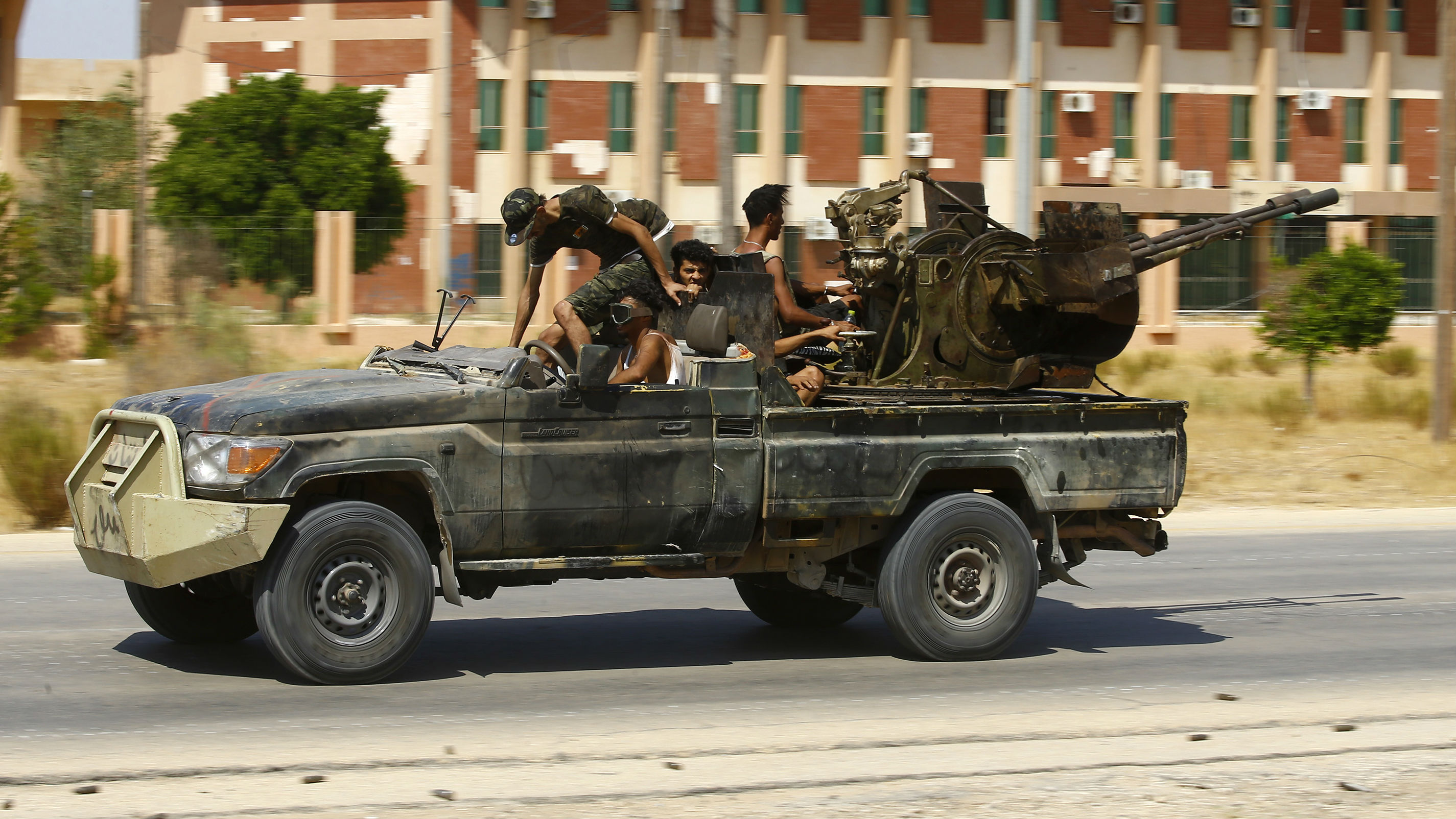What’s next for Libya?
The warring factions in the country are due to resume talks this week in hopes of a ceasefire

A free daily email with the biggest news stories of the day – and the best features from TheWeek.com
You are now subscribed
Your newsletter sign-up was successful
Talks are due to resume on Tuesday between the UN-recognised Government of National Accord (GNA) in Libya and the competing forces of General Khalifa Haftar, with the goal of achieving a permanent ceasefire in the west of the country, where fighting has escalated in recent weeks.
A precarious ceasefire provisionally agreed in Moscow on 13 January has so far been flouted repeatedly by both sides, with the international backers of the factions also violating a UN Security Council arms embargo in place to curtail military support to the warring parties.
The talks, to be hosted by the UN, will aim to impose restraint in a conflict which has spiralled in complexity over the past few years as more foreign players, including Turkey, Russia and the UAE, have moved to influence it.
The Week
Escape your echo chamber. Get the facts behind the news, plus analysis from multiple perspectives.

Sign up for The Week's Free Newsletters
From our morning news briefing to a weekly Good News Newsletter, get the best of The Week delivered directly to your inbox.
From our morning news briefing to a weekly Good News Newsletter, get the best of The Week delivered directly to your inbox.
What has been happening in Libya?
While a weak, UN-backed administration holds the Libyan capital of Tripoli, the city is under siege by Haftar’s forces, which currently have control of most of the rest of the country. Haftar’s Libyan National Army, which launched its offensive to capture Tripoli in April 2019, has the backing of the UAE, as well as Russian mercenaries from the Wagner private security group, said the FT.
The Tripoli-based administration, however, has the backing of Turkey, which recently sent thousands of soldiers into the country, and Qatar, said The New York Times.
In January, the international backers of the two sides agreed to a ceasefire and, at a conference in Berlin, made a move to end international involvement in the war, which has been raging since the overthrow of Muammar Gaddafi in 2011. However, the hope sparked by last month’s meetings was shortlived; on Sunday, the UN’s deputy special envoy for Libya, Stephanie Williams, described the current truce between the two sides as a “joke”.
A free daily email with the biggest news stories of the day – and the best features from TheWeek.com
Williams said there had already been 150 violations of the arms embargo, and that the difficulty of monitoring them all over land, sea and air had meant that “accountability” was dwindling, according to The Guardian.
–––––––––––––––––––––––––––––––For a round-up of the most important stories from around the world - and a concise, refreshing and balanced take on the week’s news agenda - try The Week magazine. Start your trial subscription today –––––––––––––––––––––––––––––––
What lies ahead for Libya?
While a previous round of talks ended without an agreement between the two sides, talks commencing this week will focus on how to de-escalate the conflict and work towards a permanent ceasefire. The UN is working on a resolution to impose sanctions on countries that break the arms embargo, and halting the “influx of foreign arms” into the country remains a central goal of negotiations, said The Washington Post.
However, with the UN struggling to stem violence on the ground between the GNA’s army and Haftar’s forces, as well as limit the influence of outside forces, prospects of a peaceful resolution to the conflict seem remote. Turkey’s recent support in Tripoli, including sending armoured vehicles, anti-aircraft kit and 2,000 Syrian mercenaries coordinated by the Turks, has for now “put paid” to Haftar’s designs on the city, said The Times. However, “unless western powers can hold the sponsors of this conflict to their promises to disengage, there will be more fighting”.
-
 The broken water companies failing England and Wales
The broken water companies failing England and WalesExplainer With rising bills, deteriorating river health and a lack of investment, regulators face an uphill battle to stabilise the industry
-
 A thrilling foodie city in northern Japan
A thrilling foodie city in northern JapanThe Week Recommends The food scene here is ‘unspoilt’ and ‘fun’
-
 Are AI bots conspiring against us?
Are AI bots conspiring against us?Talking Point Moltbook, the AI social network where humans are banned, may be the tip of the iceberg
-
 Epstein files topple law CEO, roil UK government
Epstein files topple law CEO, roil UK governmentSpeed Read Peter Mandelson, Britain’s former ambassador to the US, is caught up in the scandal
-
 Iran and US prepare to meet after skirmishes
Iran and US prepare to meet after skirmishesSpeed Read The incident comes amid heightened tensions in the Middle East
-
 Israel retrieves final hostage’s body from Gaza
Israel retrieves final hostage’s body from GazaSpeed Read The 24-year-old police officer was killed during the initial Hamas attack
-
 China’s Xi targets top general in growing purge
China’s Xi targets top general in growing purgeSpeed Read Zhang Youxia is being investigated over ‘grave violations’ of the law
-
 Panama and Canada are negotiating over a crucial copper mine
Panama and Canada are negotiating over a crucial copper mineIn the Spotlight Panama is set to make a final decision on the mine this summer
-
 Why Greenland’s natural resources are nearly impossible to mine
Why Greenland’s natural resources are nearly impossible to mineThe Explainer The country’s natural landscape makes the task extremely difficult
-
 Iran cuts internet as protests escalate
Iran cuts internet as protests escalateSpeed Reada Government buildings across the country have been set on fire
-
 US nabs ‘shadow’ tanker claimed by Russia
US nabs ‘shadow’ tanker claimed by RussiaSpeed Read The ship was one of two vessels seized by the US military